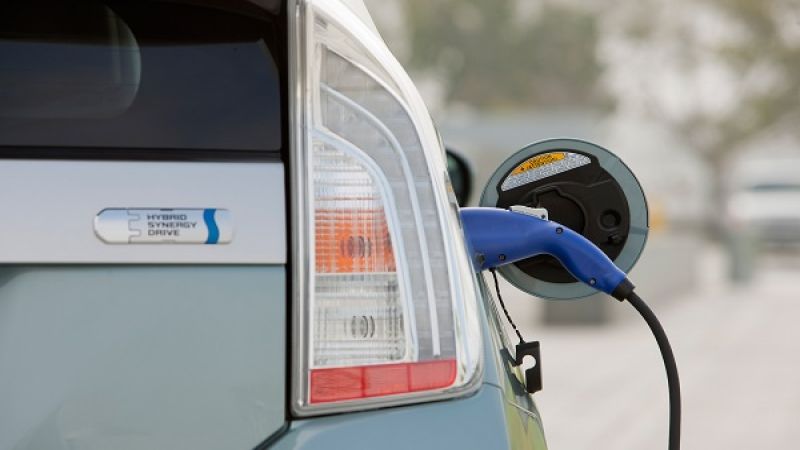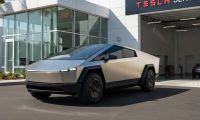Our recent story about electric vehicles and extended range EVs taking up spots at airport charging stations spurred an interesting dialogue among actual EV owners and some enthusiasts of EVs. At first blush it seems understandable why EV owners and advocates would want the electricity at charging stations at town hall or an airport to be free. First off, you can’t beat the price, right? Actually, there are deeper reasons. Shouldn’t EV owners be rewarded for driving relatively costly vehicles that are helping the environment? After all, there are very large federal, state and local tax incentives provided to EV buyers, so what is all the fuss about a little electricity? Why bother collecting a small fee?
One reason is access. As an EV owner pointed out the ratio of needed charging station spots to available spaces will never be 1:1. That means there will always be more EV drivers who could use a space than spaces provided. This may or may not be true, but from the point of view of US and European EV owners it is true to them. Back to the airport scenario we wrote about earlier. Should a driver of an extended range EV like a Chevy Volt, plug into an available charging spot and then fly off for a week or more? Most owners of pure EVs say “Heck no.” Except they don’t say heck. They feel that the driver should drive home on gas if need be so that drivers of “real” EVs can use that spot. They must have the juice or may not be able to drive home at all.
Others are more free-thinking. They suggest things like instead of putting the EV charging parking in the best spot (right at the terminal door) putting the EV spots far away. Interesting idea. Although this author is not yet an EV owner, by my observation (and I take pictures) the EV spots are like handicapped spots. Always closest to where the driver is planning to go. Why? Because it is less expensive to bring the juice to that spot as opposed to far away from the building in many cases. Not so much at airports.
Other EV owners say that a fee has benefits to EV owners. For example, it will discourage the plug-in Prius and plug-In Honda Accord owners from getting in the habit of always taking an available spot to simply top-off for free while out and about. One EV owner suggested a steep fee, but we think he was just brainstorming. His point though was interesting. He says that most EV owners don’t actually need to charge up while out and about. The cars have range enough. His idea is to make the public stations expensive so only those who actually need juice will use them. That concept is worth considering.
New York City has the most impressive public transit system on Earth, London being a possible tie. I have travelled in both cities extensively and never used a private car even once. Yet, NYC just decided to make its parking 20% EV compatible. Why bother? If NYC really wants to go green why not eliminate the parking spots altogether? One EV owner that does drive into NYC pointed out that the luggage and cargo of car is sometimes a must.
On this note, as a non-EV owner I have always wondered why town halls are always the first places to get a charger. By definition, if you are at town hall, you live in that town. All EVs can make it from home to town hall and back without charging up. The same is true for grocery stores. Near my home is a Big Y supermarket with an EV charging spot I have never seen occupied. Thinking it through, who shops more than 10 miles from home for food in America? Is putting warm milk and ice cream into the fridge fun? In some rural areas people do need to drive a bit to get groceries. Let’s keep it real. Most EVs are not even for sale in those states. Putting EV chargers in suburban areas is really not necessary for EV owners who are shopping or doing business at those places.
What I have learned most form listening to actual EV owners and giving real consideration to their experiences and views is that the simple extension cord method is being vastly underestimated. Airports are the perfect example. All EVs I know of leave the factory with the ability to plug into a 115 socket of proper amperage. A Tesla owner recently pointed out that he uses that when he travels to some hotels in Nevada and it works great. Overnight, or for a week at the airport charging time is moot. A special, expensive charger is not needed. The facility wanting to help out EV owners could dedicate a row of spaces and create a bank of 115 VAC outlets (and cords) for almost nothing compared to the cost of special chargers. Indeed this is exactly what another EV owner says he does after a considerable drive. He plugs in at work this way and since work takes all day he gets a free, full charge.
Where EV chargers really do make the most sense is at highway rest areas. Here in Mass. most of the rest areas run by the state were closed due to budget cuts and port-a-potties put there instead. I have never seen a single EV charger in Mass. at a highway rest stop. In fact, I cannot remember ever seeing one at any rest area anywhere I have driven. Tesla is stepping up and building its own Supercharger network of course. As far as I know that doesn’t help Nissan Leaf, Fiat EV, or Honda Fit EV owners at all.
To me, the most fascinating thing about the EV charger etiquette and infrastructure debate is that the “pure” EV owners and enthusiasts consider a Chevy Volt a hybrid. Clearly it is in a way, but to the Volt owners I know it is an electric car and they use it that way. The cool twist is that the pure EV owners would rather that vehicle burn gas than take a charger slot that their “pure” EV might need. Sort of ironic if you think about it.
Photo courtesy of Toyota media site.













Comments
It's not that I (LEAF driver)
Permalink
It's not that I (LEAF driver) would rather a plug-in hybrid burn gas. They just don't unplug and move their car, they will take up a spot all day, or weeks like at the air port.
I don't think it's so much
Permalink
I don't think it's so much that pure EV car owners want Volt-hybrid owners burning extra gas, but rather most pure EV's (other than Tesla's) only get a measly 50 to 100 miles per charge (depending on how you drive them). Thus if it’s a choice between ‘saving the environment’ and ‘making it home’, I am fairly sure ‘making it home’ takes priority. Thus it’s only fair that the owners of electric-hybrids (like the Volt, Karma, and Prius plug-in, etc) to have a little empathy when it comes to hogging long-term EV charging spots.
As a Model S owner, I make it a rule to never park in an EV spot, unless completely necessary (which is rare to almost never).
Thanks folks. Don't make too
Permalink
Thanks folks. Don't make too much of that one statement (about Volts). It was just an interesting twist is all. In general, I am finding not many EV owners charge on the go. I am sure there are some and many could write in saying they do, but just in passing I have collected a lot of comments from EV owners saying they don't. Like Charlotte in the interview who has never used a Supercharger, but hopes to.